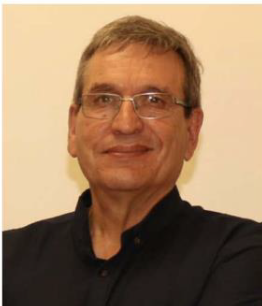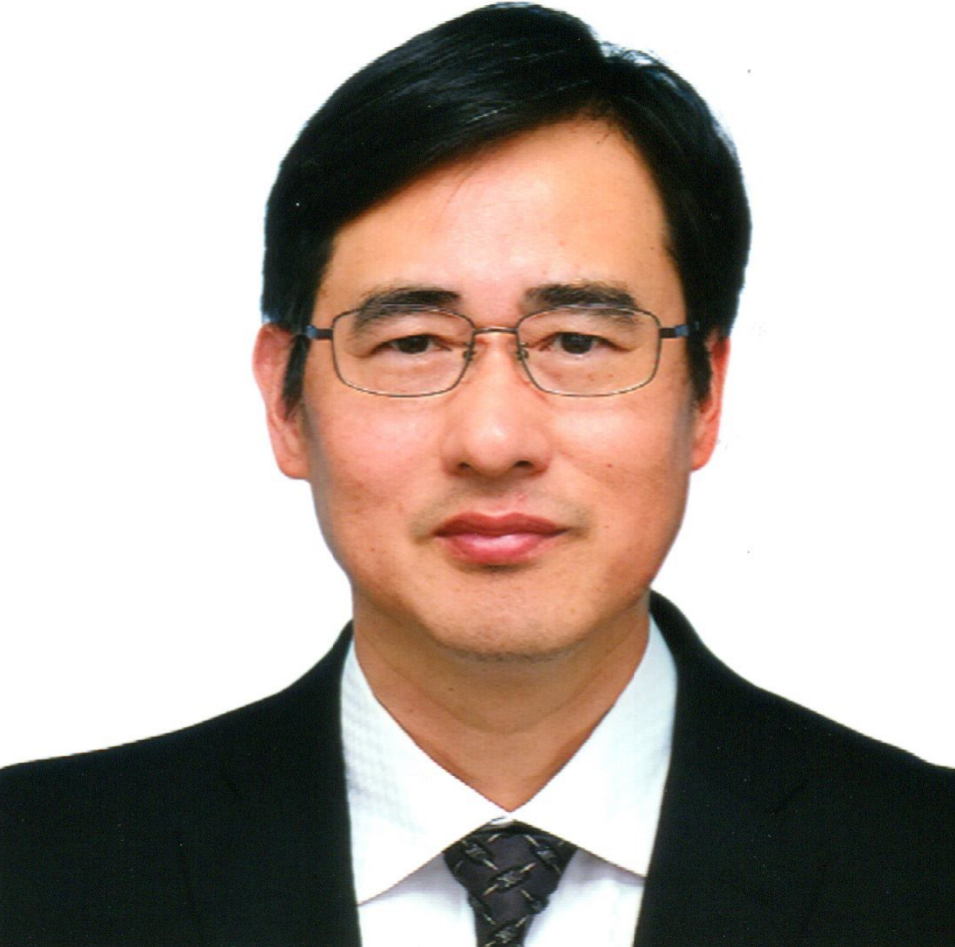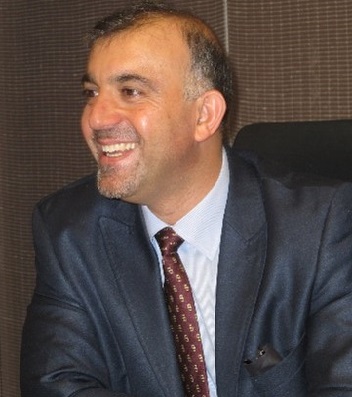Keynote Speakers
Prof. Rodrigo Martins
Full Professor, Department of Materials Science, Faculty of Science and Technology, Universidade Nova de Lisboa, and CEMOP-UNINOVA, PortugalSpeech Title: Carbon Neutrality: A New Era of Green and Low-Cost Electronics
Abstract: Currently, energy management plays a crucial role for the internet of things (IoT) growing with the increment of the amount of data to handle. The pursue of more and more comfort in society will lead to an exponential increase of IoT nodes, since almost every device has embedded electronics. However, this will lead to a high quantity of electronic waste (e-waste) accumulation that will not be recycled and will most likely end in landfills of developing countries. In 2019, 53.6 Mt of e-waste was generated worldwide, and it is expected to reach 74 Mt by 2030. To overcome this serious societal problem, it is necessary to rethink the production process of some electronic devices and to reconsider their life cycle assessment, more specifically their environmental footprint. Printed electronics can be a solution and its market is expected to have a compound annual growth rate of 21.5 % from $7.8 billion in 2020 to $20.7 billion by 2025. By adopting abundant and sustainable materials (metal oxides) and processes electronics waste is reduced, leading to the reduction of the carbon footprint, and paving the way for green electronics. In this work, suitable processes and materials are developed to assure the upscale of metal oxide-based devices to printing industry levels.
Keywords: Internet of things (IoT), e-waste, Printed electronics, Metal oxides, Sustainability
Biography: Rodrigo Martins, President of the European Academy of Sciences; President of the International Union of Materials Research Societies; Full Professor at FCT-NOVA. Member of the:
- Scientific Council of the European Research Council
- Portuguese Academy of Engineering.
- Portuguese Order of Engineers, OE.
- Board of Admission and Qualification of OE.
Prof. Rodrigo Martins is the founder and director of the Centre of Excellence in Microelectronics and Optoelectronics Processes of Uninova; leader of the Materials, Optoelectronics and Nanotechnologies group of I3N/CENIMAT and its sub-director; member of the nomination committee of the EIT KIC Raw Materials; Editor in Chief of the journal Discover Materials. He is Expert in the field of advanced functional materials, nanotechnologies, microelectronics, transparent electronics (pioneer) and paper electronics (inventor), with more than 575 papers published in WoK; Member of the:
- Steering Committee of European Technology Platform for Advanced Engineering Materials and Technologies, EuMat.
- Joint Innovation Centre for Advanced Material Sino-Portuguese.
- administration board of the nature journal: npj 2D Materials and Applications.
Prof. Rodrigo Martins was decorated with the gold medal of merit and distinction by the Almada Municipality for his R&D achievements, in 2016. He got more than 18 international and national prizes and distinctions for his scientific work. ORCID: http://orcid.org/0000-0002-1997-7669; Webpage: https://cemop.uninova.pt/
Prof. Qixin Guo
Department of Electrical and Electronic EngineeringDirector of Synchrotron Light Application Center
Saga University, Japan
Speech Title: Color-Tunable Light Emitting Diodes Based on Rare Earth Doped Gallium Oxide Films
Abstract: Artificial lighting technology is of vital importance because it has involved in almost every aspect of modern society. As the next-generation light source to replace traditional incandescent and fluorescent lamps, white light emitting diodes are of crucial significance for illumination and displays owing to their excellent merits including small size, environmental friendliness, high reliability, low power consumption, longevity, and high luminous efficiency. Color-tunable light emitting diodes are of high interest because they would rely on primary color mixing rather than blue-light stimulated phosphors, avoiding impact on human sleeping habits and circadian rhythms caused by excessive blue light, and allowing for smaller pixels in display applications. Color-tunable light emitting diodes can be fabricated by using GaInN with different indium concentration as luminescence layers. However, the emission wavelength is unstable due to its temperature dependence of bandgap.
Rare earth (RE) doped semiconductors, which exhibit strong and sharp emission due to intra-4f-shell transitions in RE ion cores, have potential applications in color display and luminescence devices. Historically, much effort has been made to produce visible color emission using RE doped GaN. It has been reported that the luminescence efficiency of dopant emissions could be highly improved with a wide bandgap host. Moreover, the wide bandgap semiconductors exhibit highly thermal and chemical stability, which make them ideal hosts for RE ions. We have demonstrated that red, green and blue emissions are clearly observed from the Eu, Er, and Tm doped Ga2O3 films respectively. We found that the normalized emission intensity of the RE doped Ga2O3 films has a smaller temperature variation compared to that of the RE doped GaN films. In this talk, we report on the structure, surface morphology and optical properties of these RE doped Ga2O3 films. Recent progress on the characteristics of the color-tunable light emitting diodes by using Eu, Er, and Tm co-doped Ga2O3 films will also be presented.
Biography: Prof. Dr. Guo received B. E., M.E., and Dr. E degrees in electronic engineering from Toyohashi University of Technology in 1990, 1992, and 1996, respectively. He is currently a Professor of Department of Electrical and Electronic Engineering, Saga University and was the Director of Saga University Synchrotron Light Application Center in Japan from April 2012 to March 2022. His research interests include epitaxial growth and characterization of semiconductor materials. Prof. Guo has published more than 360 papers in scientific journals including Nature Communications, Advanced Materials, Physical Review B, and Applied Physics Letters with more than 8700 citations (h-index: 49).
Prof. Yarub Al-Douri
American University of Iraq, Sulaimani, Kurdistan, IraqSpeech Title: Multi-application for Quinternary Alloys
Abstract: The Cu2Zn1-xCdxSnS4 quinternary alloy nanofibres with different Cd concentrations were grown on glass substrate using the electrospinning technique. The structural properties of Cu2Zn1-xCdxSnS4 quinternary alloy nanofibres were investigated by X-ray Diffraction (XRD), Field Emission-Scanning Electron Microscopy (FE-SEM) and Atomic Force Microscopy (AFM). Optical properties were analysed through UV-visible Spectrophotometry (UV-Vis) and Photoluminescence Spectroscopy (PL), which revealed that there is a decrease in band gap from 1.75 eV to 1.61 eV, with the increasing Cd concentration from x = 0 to x =1. The current–voltage measurements exhibited a power conversion efficiency of 3% under the solar illumination with intensity of 100 mW/cm2. Electrical properties supported that the Cu2Zn1-xCdxSnS4 quinternary alloy can be used as an absorber in solar cells. The bulk modulus, refractive index and dielectric constant, were also investigated.
Keywords: Alloy, Nanostructures, Optical.
Biography: Prof. Dr. Yarub Al-Douri is from American University of Iraq, Sulaimani. Al-Douri has Doctorat D’etat in Materials Science. He was appointed Full-Professor, Visiting Professor, Adjunct Professor, Consultant Expert, Associate Professor, Assistant Professor, Research Fellow (A), Scientific Collaborator and Post-doc in Iraq, Malaysia, Turkey, Algeria, Yemen, Singapore, Germany and France, respectively. Al-Douri has initiated Nanotechnology Engineering MSc Program and Nano Computing Laboratory, the first initiatives in Malaysia. He has received numerous accolades including World’s Top 2% Scientist Career-Long Citation Impact by Stanford University, USA 2020, World’s Top 2% Scientists by Stanford University, USA 2021 & 2020, OeAD Award, Austria 2020, Japan Society for the Promotion of Science (JSPS) Award 2019, Asian Universities Alliance (AUA) Award 2019, Iraqi Forum for Intellectuals and Academics Award (IFIA) 2019, TWAS-UNESCO Associateship (Twice) Award 2015 & 2012 and Best Paper Award at Global Conference on Energy and Sustainable Development in UK 2015, the total is 69 awards. He has almost 30 years’ experience of research, teaching, administrative and editorial board managing, organizing events, research grants and consultations, in addition to more than 759 publications currently including patents, books, chapters review, papers, articles and conferences and US$ 5M research grants. Al-Douri has citations = 7212, h-index = 43 and i10-index = 199 for the moment. He has graduated under his own supervision many of PhD and MSc students. Al-Douri is Associate Editor of Nano-Micro Letters (Springer-Q1), Editor-in-Chief of Experimental and Theoretical NANOTECHNOLOGY, Editor-in-Chief of World Journal of Nano Science and Engineering, Editor and Peer-reviewer of different international journals, member of different international scientific associations. His research field focuses on renewable energy, modelling and simulation, semiconductors, optical studies, nanoelectronics and nanomaterials.
More details will come soon…



